In photos: National Day for Truth and Reconciliation at McMaster
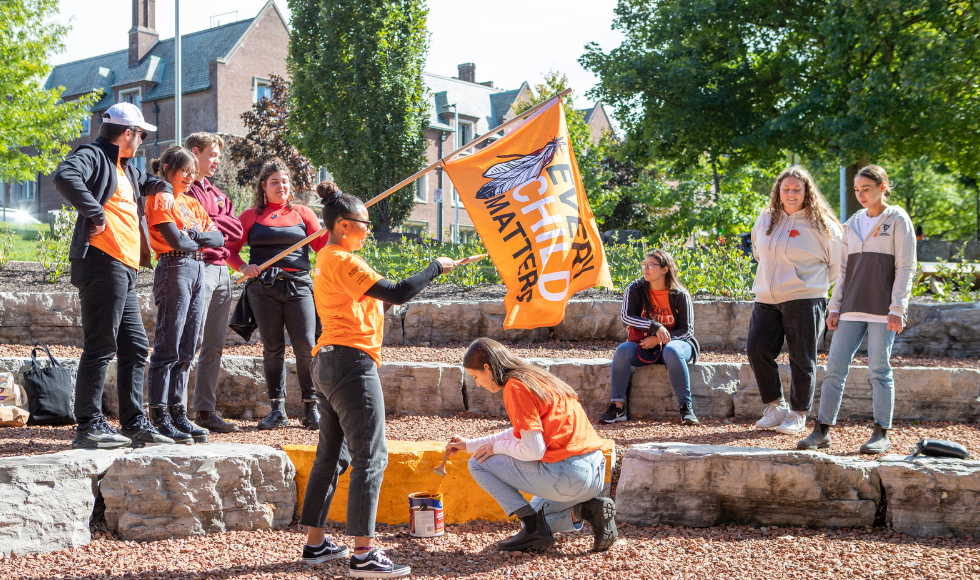
Students take turns painting an armour stone at the Indigenous circle orange to mark the National Day for Truth and Reconciliation. (Photos by Georgia Kirkos, McMaster University)
Every time Kathy Knott gets to hold one of her 14 grandchildren, she is reminded of how fortunate she is. Generations of Indigenous people — including her own family members and friends — were not so lucky, as she noted in a speech Friday.
Knott, one of the Elders in Residence at the Indigenous Studies department, spoke of both sorrow and hope before a screening of the film Indian Horse on Friday to mark the National Day for Truth and Reconciliation, a time to honour the children lost to residential schools, and the ongoing impacts on survivors, their families and communities.
The screening was one of several commemoration events on and leading up to Sept. 30, also known as Orange Shirt Day. Classes were cancelled to provide an opportunity for students, faculty and staff to acknowledge and reflect on the tragic history and ongoing impacts of residential schools in Canada.
Here are some scenes from a few of those events:
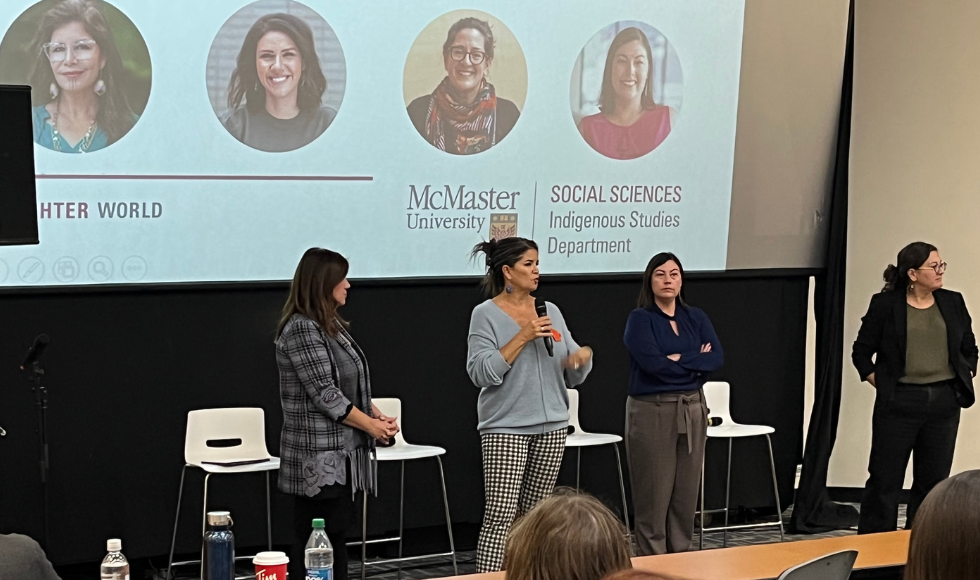
Indigenous scholars Vanessa Watts, Leanne Leddy and Mary Jane McCallum talked about the development of the Indian residential school system at a panel discussion moderated by McMaster Indigenous Research Institute director Savage Bear.
The panellists explored the legacy and impact of the residential school system, Indigenization — especially within a university setting — and the work that still needs to be done to address the Truth and Reconciliation Commission’s 94 calls to action seven years after it made its recommendations. Access a video of the panel discussion here.
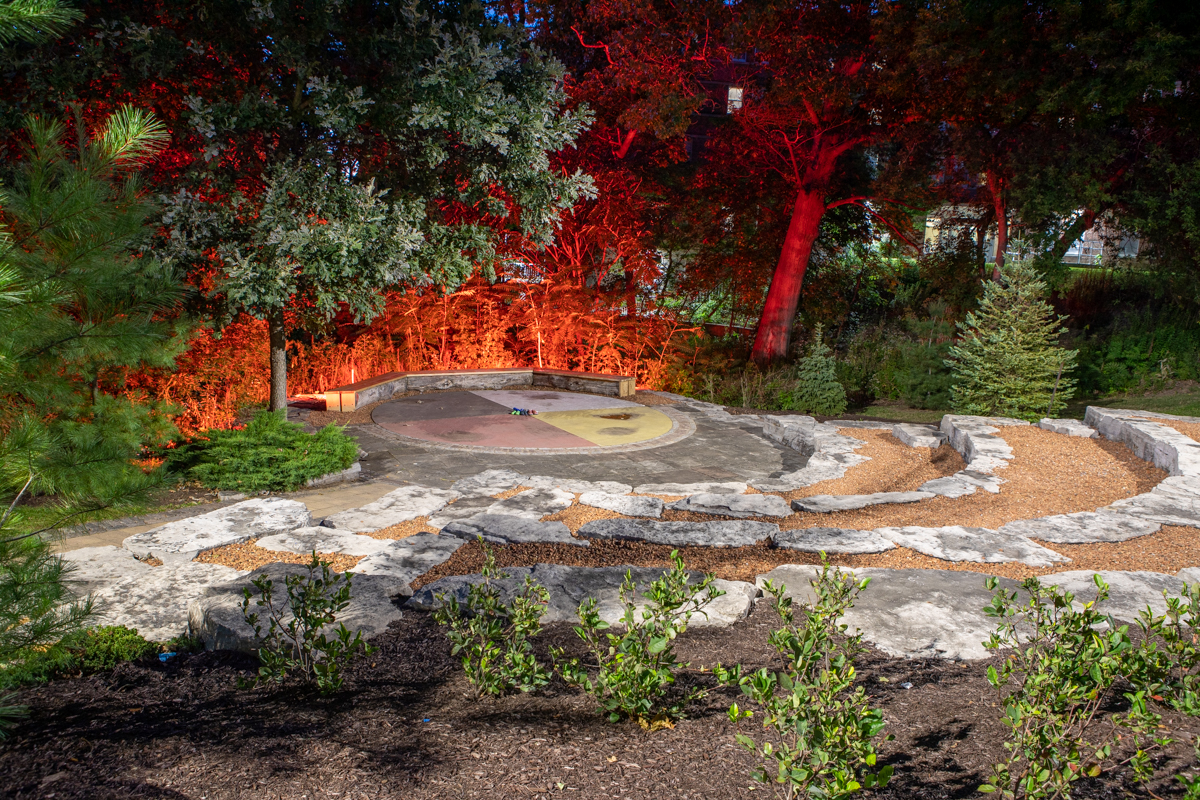
Hamilton Hall, University Hall and one side of the Indigenous Circle on campus were lit up orange from sundown to sunrise on Sept. 29 and 30. Several pairs of child-sized shoes sit at the centre of the circle to honour the memory of all the children affected by the residential school system.
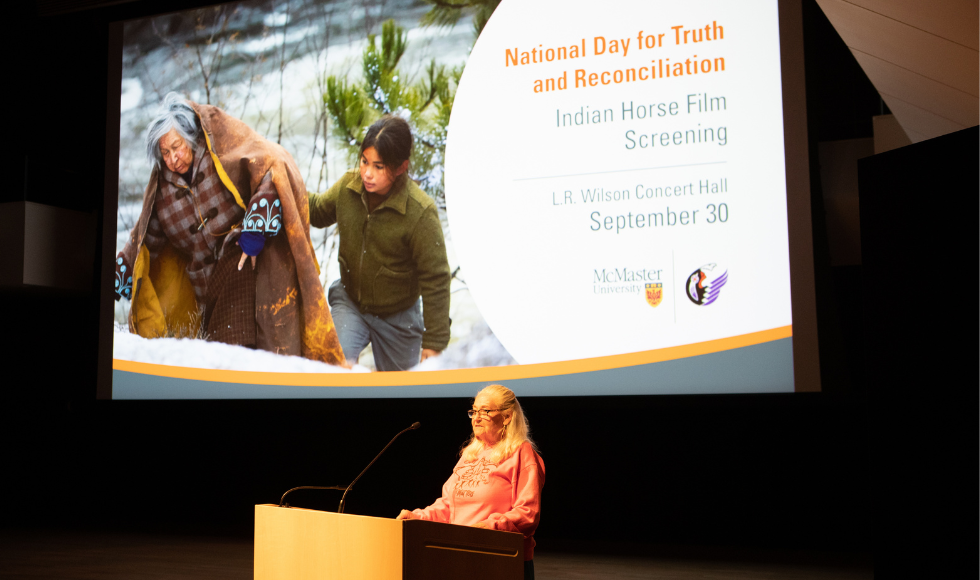
Indigenous Student Services and the Indigenous Studies department hosted a screening of Indian Horse at the concert hall in L.R. Wilson Hall. The multi-award-winning film tells the story of Saul Indian Horse, who survives the residential school system and goes on to become a top hockey player. Saul learns that trauma and discrimination are still a part of his life, despite his exceptional talents as a hockey player.
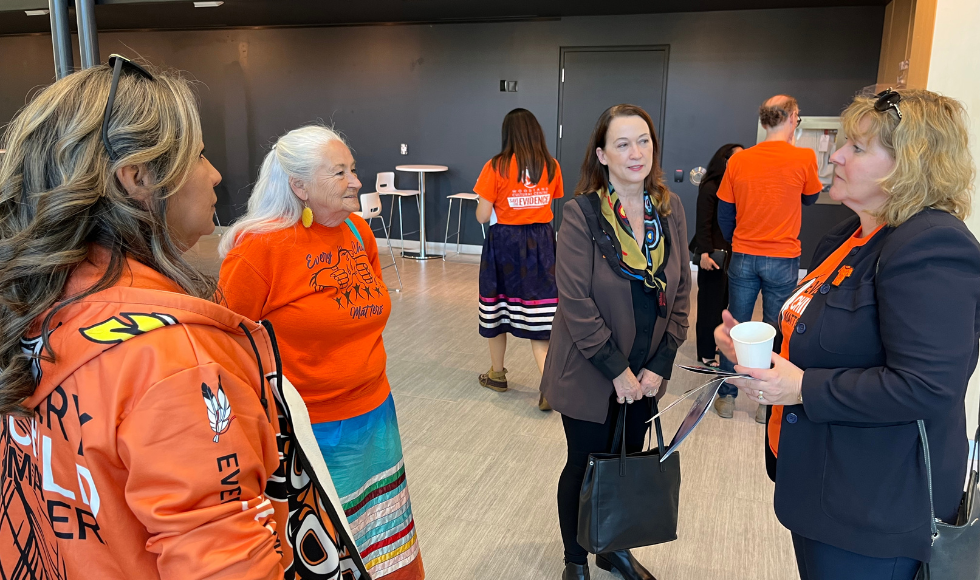
Provost and Vice-President (Academic) Susan Tighe expressed support and appreciation for event organizers at a reception in L.R. Wilson Hall following the screening of Indian Horse.
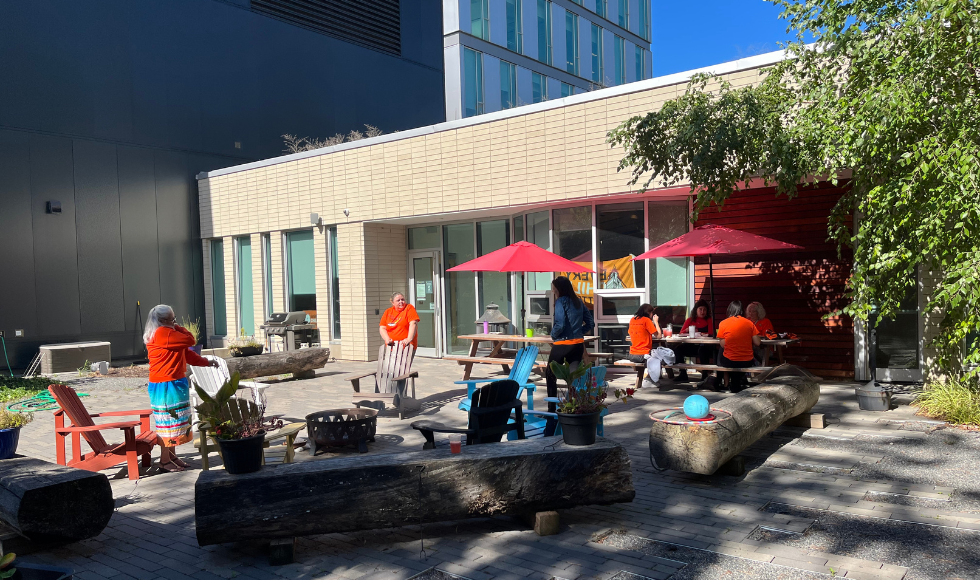
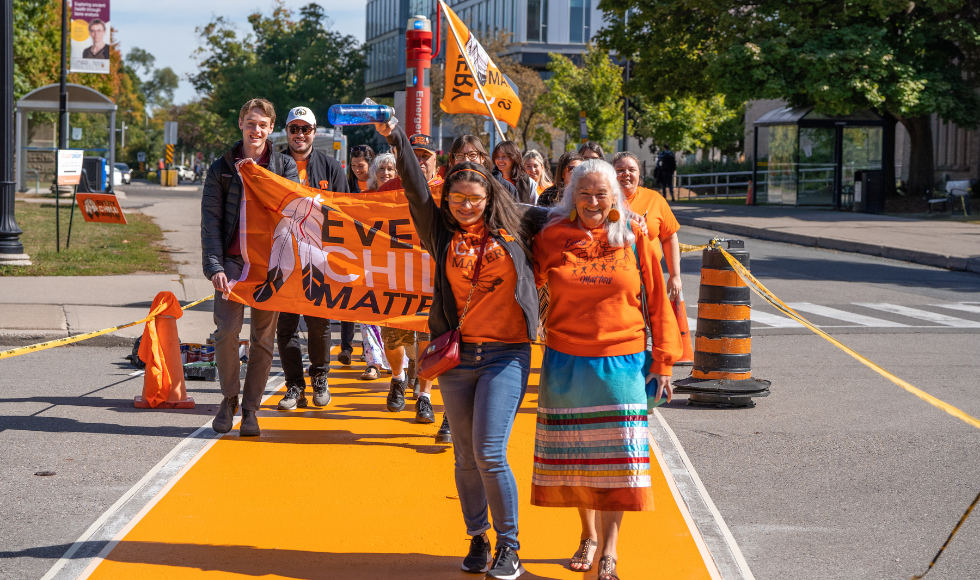
Students, elders, faculty and community members made their way across a newly painted crosswalk at Sterling Street and University Avenue on their way to the Indigenous Circle.
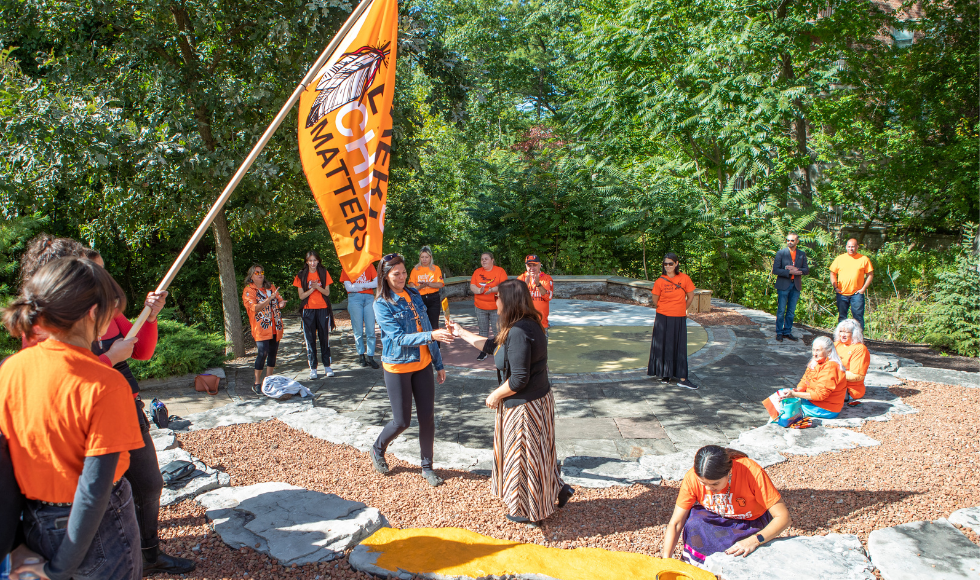
Everyone took a turn painting an armour stone at the Indigenous Circle orange. The paint will be refreshed periodically.
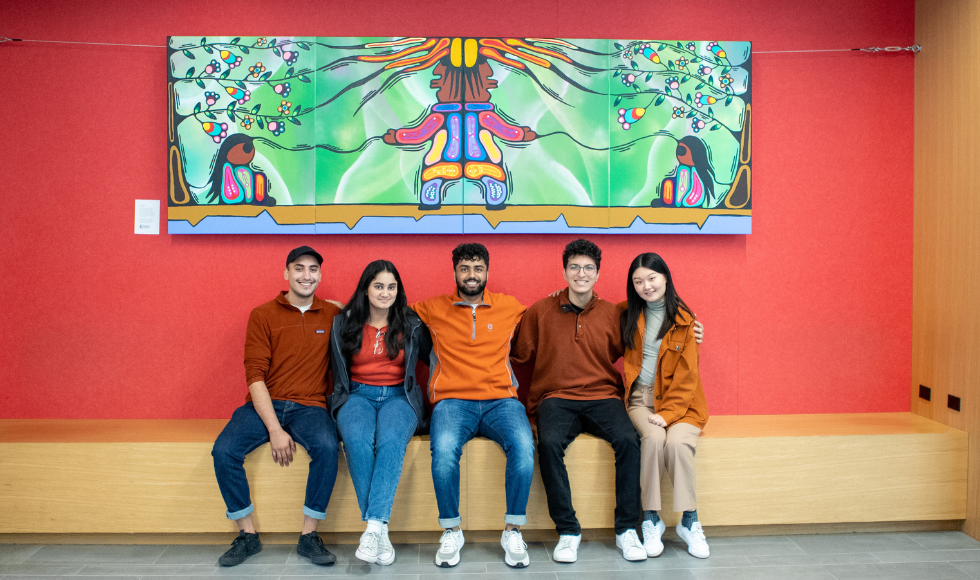
The MSU Diversity and Equity Network commissioned a mural by local Indigenous artist Kyle Joedicke with the support of the McMaster Museum of Art, the Indigenous Studies department and the MSU. When the art comes down off the walls of PGCLL, they will give it to Indigenous Studies.
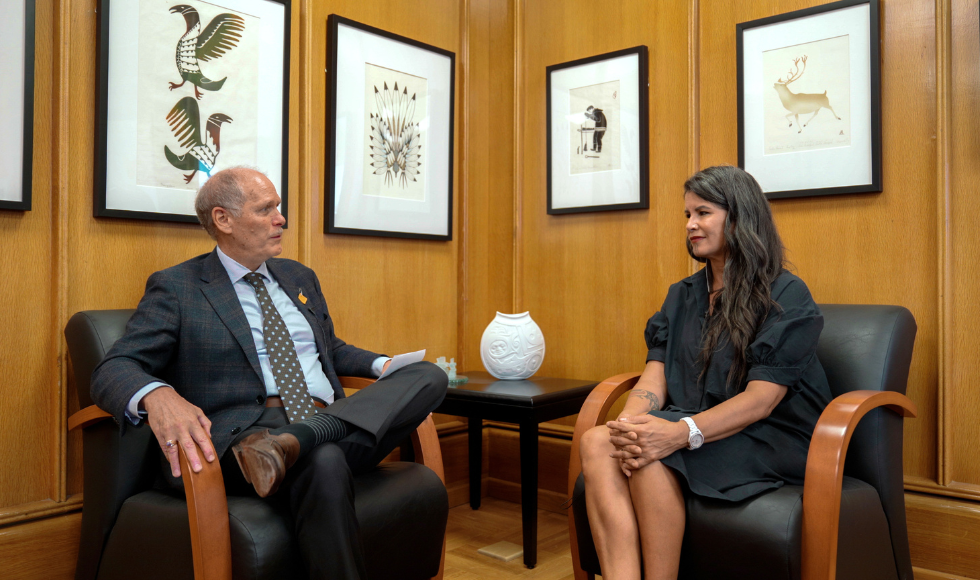
McMaster President David Farrar invites community members to learn along with him as he takes the free online course on Indigenous Canada created by McMaster Indigenous Research Institute Director Savage Bear during her time at the University of Alberta. Click here for their full conversation and more details.

